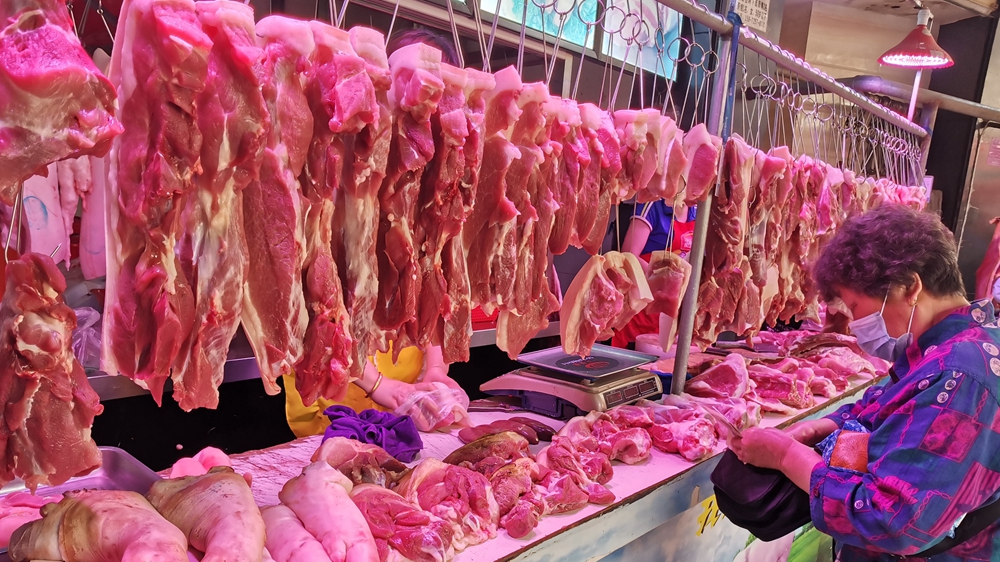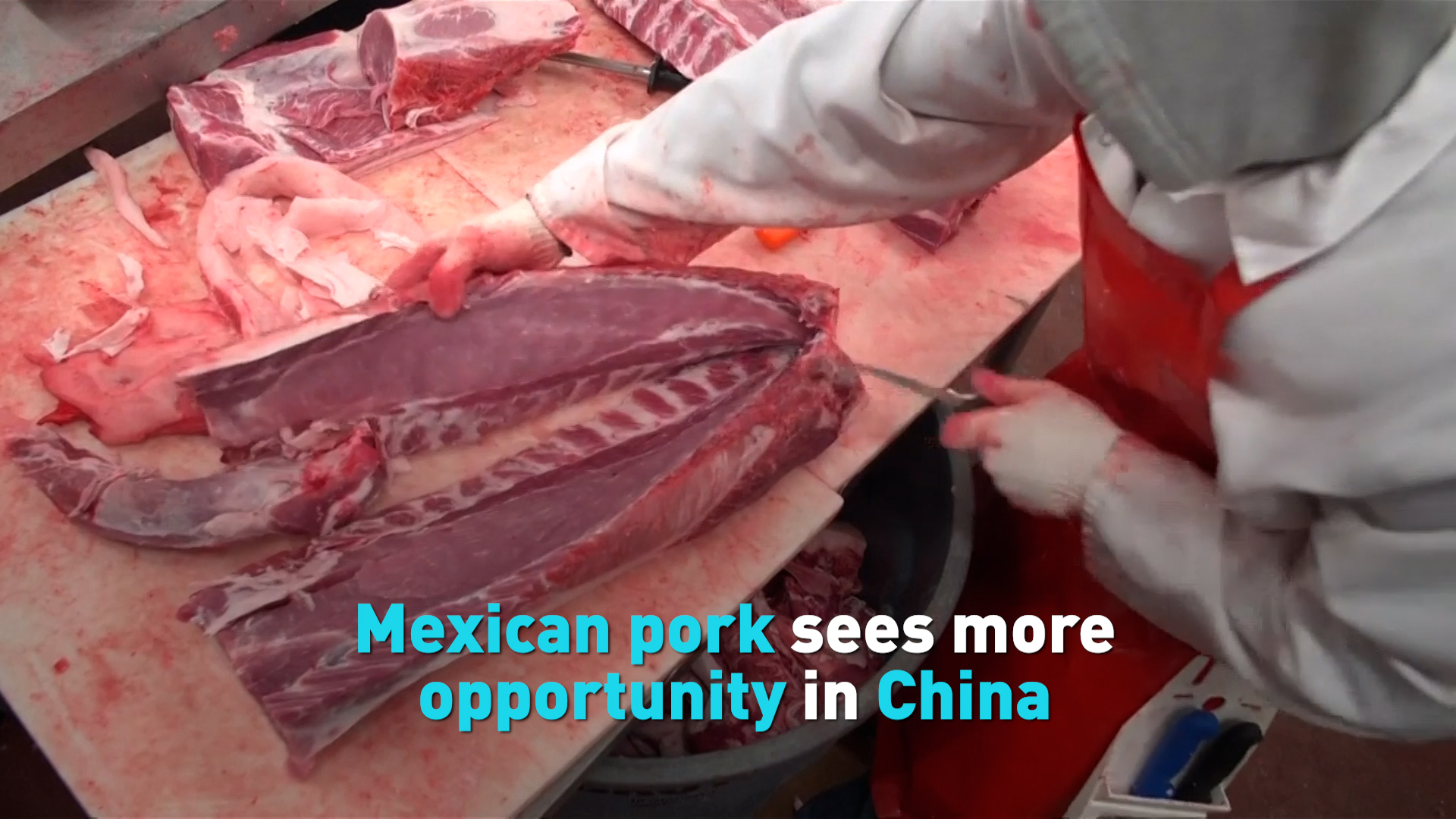
A woman stands before a pork stall in Yichang City, central China's Hubei Province, May 11, 2021. /CFP
A woman stands before a pork stall in Yichang City, central China's Hubei Province, May 11, 2021. /CFP
Since a devastating epidemic of African Swine Fever in its pork industry two years ago, China – the world's largest consumer and producer of pork – has been seeking international partners to make up for the deficit.
The extermination of more than 100 million pigs reduced China's total herd by more than a quarter (and global pork production in 2019 dropped by 8 percent). As China's pork produces struggle to recover, there are opportunities for international players in the market to gain a foothold in the Asian giant's market.
Brazil, Argentina, Australia, New Zealand and Mexico are all vying for the position. Mexico indeed saw its pork exports to China tripled last year, sending more than 771,107 tonnes across the Pacific.
Yet there is potential for much more. In order to export to China, farms and processing facilities require certification from the Chinese customs authorities. These certificates are granted by health inspectors who grant export licenses following in-person visits to facilities.
Mexico has dozens of potential suppliers, but the COVID-19 pandemic has put these in-person visits on hold, and currently only five Mexican pork producers are certified to export to China.
02:51

With no date set for when inspectors might return, the Mexico-China Chamber of Commerce is working to find other solutions.
"We are conscious of the restrictions caused by the pandemic, but we are open to innovation," said Pola Grijalva, the president of the chamber of commerce.
"We can offer virtual visits to our facilities and show our production, packing and export processes, so that everyone is convinced that things are being done properly."
"If authorities from both sides help, we can double the export figures we achieved last year."
It's a vital task, and one which Mexico's producers see as a long-term relationship. "The idea is to establish a solid business relationship, which lasts beyond the time China will need to recover from this problem," said Juan Soria, the director of Reich Scrofa, one of Mexico's largest pork producers.
"We hope it will be soon, but I think it may take many more years, so in the meantime we can contribute the protein they require."
With the opportunity and demand a certainty, Mexico must now get past the bureaucratic hurdles of pork export if it wants to bring home the bacon.

